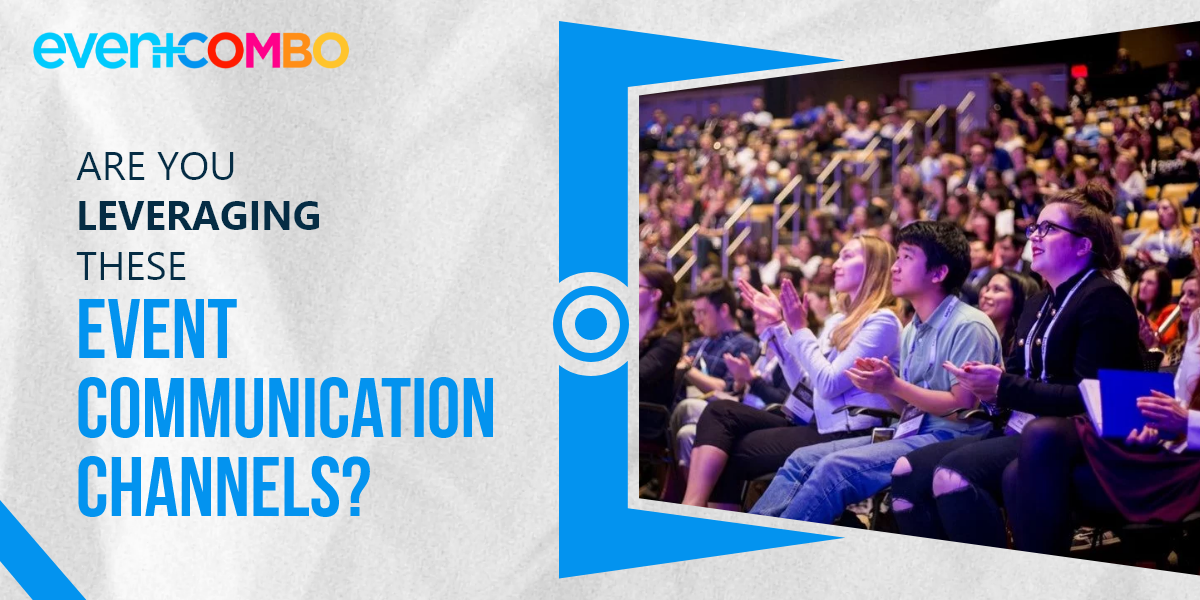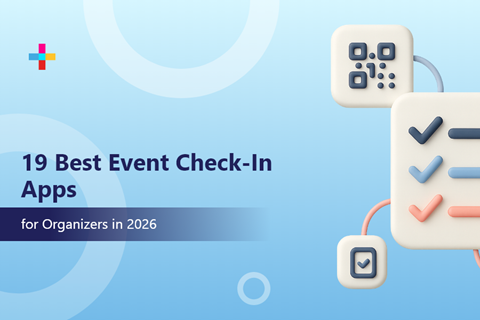

With a million ways of communication at disposal to humankind, the event Industry is continually embracing innovation, revolutionizing the way it communicates with attendees. From conveying critical updates to sharing enticing session details, the seamless flow of information is the cornerstone of successful event planning. After all, effective communication not only minimizes chaos on the event day but also amplifies attendee experience by enabling a sense of connection and excitement throughout the event journey.
In this blog, we'll delve into the indispensable methods and tools for keeping attendees informed, engaged, and truly immersed in the event experience.
The Consequences of Inadequate Communication
Failure to prioritize effective communication with attendees can lead to tangible hiccups that directly impact the success of an event. Here are some probable scenarios from the event landscape that may lead to chaos.
The Essential Channels for Event Communication
1. Emails: Emails are essential and the most preferred mode for sharing information before an event. They provide a direct and reliable means of reaching attendees with updates, reminders, announcements, and more detailed information than push notifications can offer. With personalized emails you can tailor communication to different segments of attendees, ensuring they receive all the relevant information. Whether it's a gentle reminder about upcoming sessions, registration deadlines, or logistical details, these emails help attendees stay on track and be prepared for the event.
2. Event App: An event app acts as a central hub for all event-related information, providing attendees with convenient access to essential details. From notifying changes in agendas, schedules and speakers to sharing sponsor information and interactive venue maps, event apps offer a comprehensive resource at attendees' fingertips. Push notifications delivered through the app provide instant alerts, especially for time-sensitive announcements or last-minute changes. This ensures that attendees are always well-informed, even when on the move.
3. Event Website: A well-designed event website acts as the digital representation of the event, serving as its virtual face. It should offer comprehensive information about the agenda, speakers, venue, and registration process. Additionally, incorporating details from previous years can generate excitement and anticipation for what attendees can expect. Include videos featuring the guest lineup to further enhance engagement. It's crucial to update the website in real-time, as attendees often revisit the site for information after registering. Regular updates and announcements can be posted on the website to ensure attendees are kept informed.
4. Social Media: Social media handles serve as an additional avenue for event organizers to engage with attendees. Platforms like Twitter, LinkedIn, Instagram, and Facebook provide opportunities to share exciting news, initiate discussions, and foster community engagement from the moment the event is announced until the day it takes place. Leveraging trending topics enables organizers to amplify their message and create excitement, whether it involves announcing a celebrity appearance or adding a new session to the agenda. Furthermore, the flexibility of social media allows for creative approaches to effectively reach and captivate the audience.
Revolutionize Event Communication with Event Tech
Event technology plays a crucial role in keeping attendees well-informed throughout the event lifecycle. Utilizing the right tool stack for communication can significantly impact how events are perceived and experienced by attendees. Here are some key features to look for in your event management software:
In the dynamic landscape of event management, effective communication is crucial for success. Integrating these communication channels is essential for delivering a seamless and memorable attendee experience. Remember, informed and engaged attendees are the key to a successful event.
Up your event communication game with Eventcombo.

Professional certifications for event planners do more than provide a solid foundation in the field; they offer valuable exposure to the dynamic world of event planning and insights from prominent industry experts.

Choosing the right event management platform is vital for event professionals navigating the growing demand for in person , virtual, and hybrid events. Modern planners need solutions that offer robust features,...

Attendees don't notice good check-in. They only notice bad check-in. And planners know check-in is the first moment where their behind-the-scenes work gets exposed.